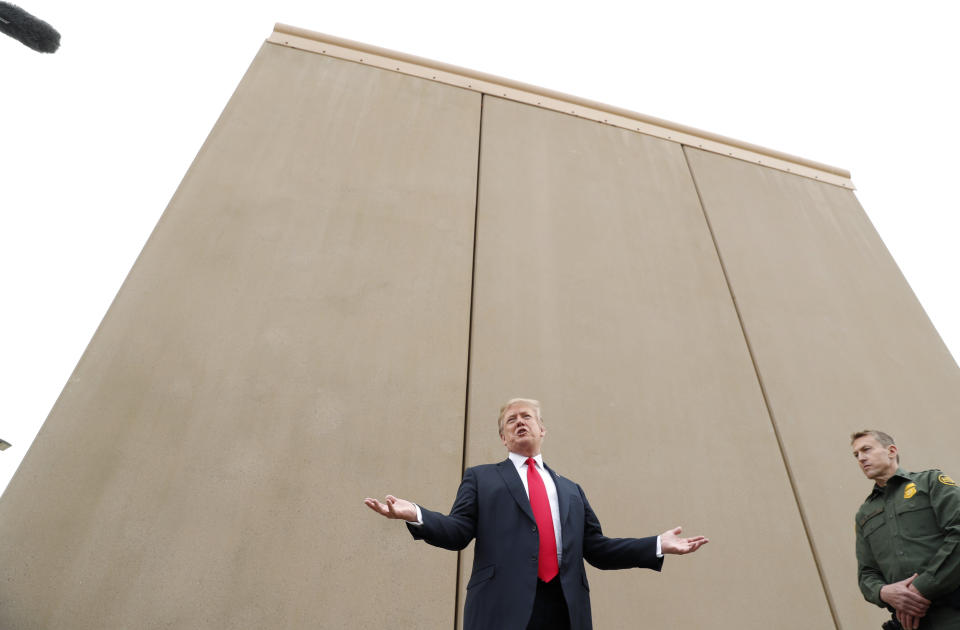The High Cost of Trump's Border Crisis

U.S. President Donald Trump speaks while participating in a tour of U.S.-Mexico border wall prototypes near the Otay Mesa Port of Entry in San Diego, California. U.S., March 13, 2018. REUTERS/Kevin Lamarque
In an abrupt reversal in the face of mounting political and public pressure, President Trump on Wednesday signed an executive order to end the separation of migrant children from their parents at the U.S. border with Mexico.
The executive order calls for detaining families together in federal custody while they await legal or immigration proceedings — “potentially violating a 1997 court settlement limiting the duration of child detentions,” The Washington Post notes. And it also directs federal departments and agencies to provide facilities to hold the families, and instructs the secretary of Defense to build such facilities if necessary.
While the order was meant to quell the firestorm of outrage sparked by the administration’s immigration crackdown and the resulting images of crying children and teenagers in cages, it could also make some financial sense. Moral issues obviously come first, but there are important financial matters at stake as well, including the lack of funding for more justice officials on the border and the sheer cost of caring for so many immigrants stuck in an administrative limbo.
It’s far more expensive to separate migrant children from their parents than to allow families to stay together, according to a Department of Health and Human Services official who spoke to NBC News. The cost of holding a child in the newly-built tent cities is $775 per night, about three times higher than the $256 per person cost of caring for families in permanent HHS facilities. Holding children in U.S. Customs and Immigration Enforcement facilities costs $298 per night.
The Trump administration began separating migrant children from their parents in May, and about 2,300 minors have entered government custody since that date, according to the Department of Homeland Security. The significantly higher costs of care are driven by the sudden need to create a separate facility for children, including security, medical support and air-conditioning, NBC said, quoting current and former HHS officials.
The federal government expects to spend $943 million to care for migrant children in 2018, according to HHS data cited by Bloomberg, although that projection does not reflect the increase in childcare expenses generated by the Trump administration’s child separation policy. More than half of that total, or $458 million, is expected to go to a nonprofit in Texas called Southwest Key Programs, which runs about a dozen facilities that care for immigrant children in the state, including the Walmart in Brownsville that has received national attention, Bloomberg reports. Business appears to be booming for the nonprofit, which is reportedly seeking warehouse space in Houston to build facilities to hold up to 240 children on a long-term basis. Bloomberg also notes that the compensation for Southwest Key Programs’ CEO, Juan Sanchez, has risen sharply over the last few years, roughly doubling in 2016 to $1.5 million.
If federal agencies are looking for a way to save money on caring for migrant children, they may not have to go far. As of Wednesday afternoon, “Deluxe King” rooms at the Trump International Hotel in Washington were renting for $348 per night.

 Yahoo Finance
Yahoo Finance 